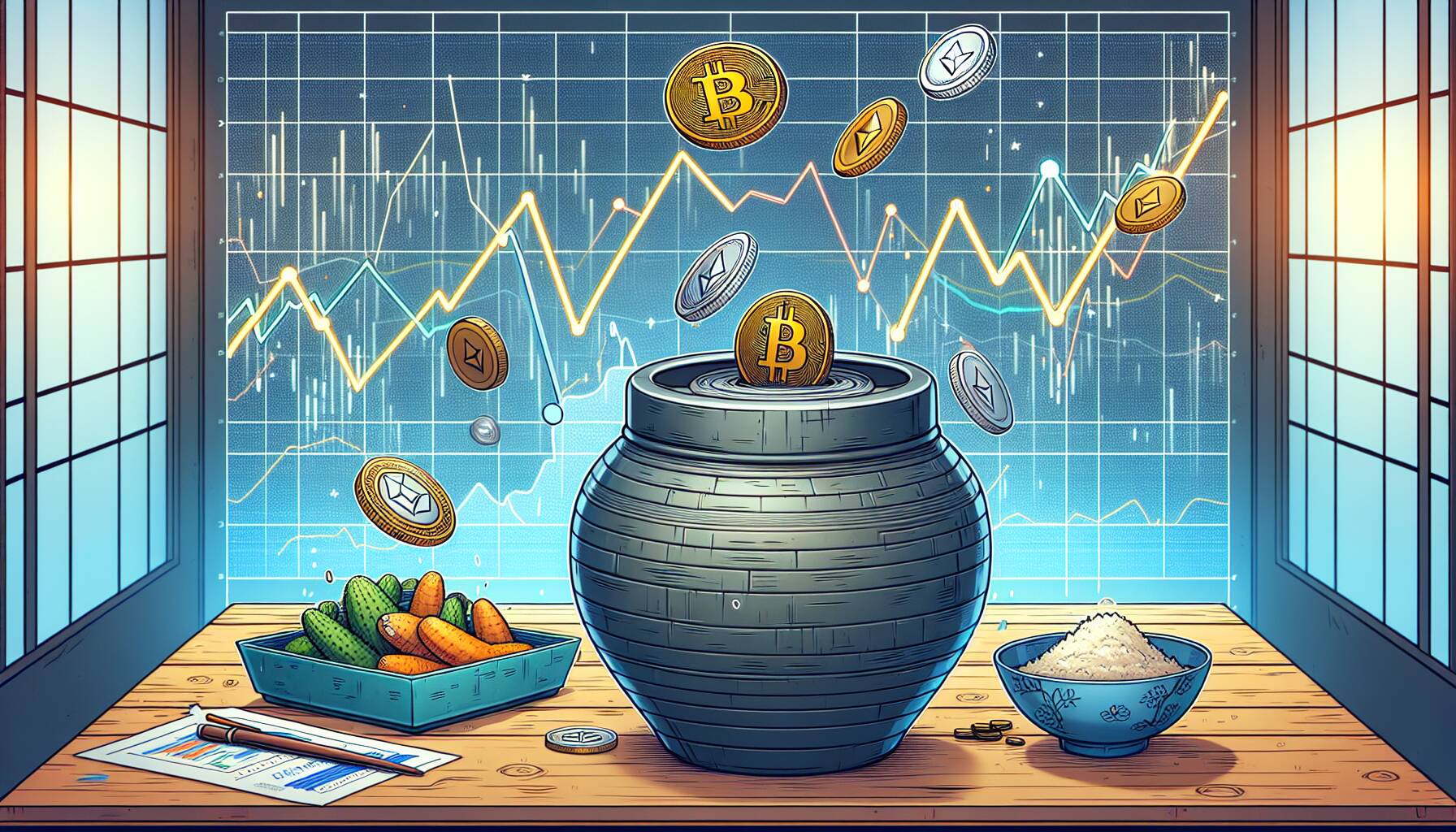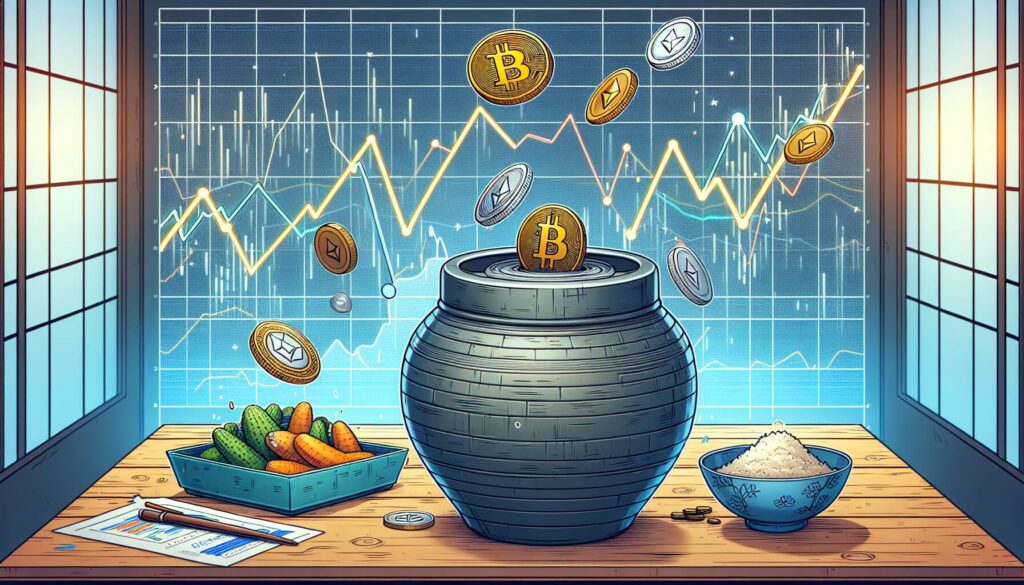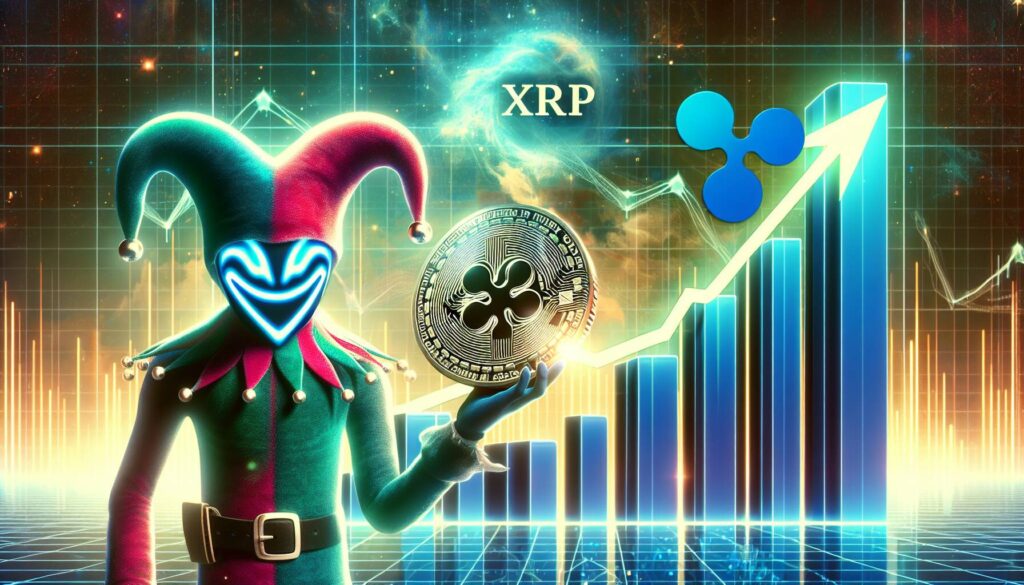The world of cryptocurrency is once again abuzz as the infamous Kimchi premium has resurfaced amidst a tumultuous market marked by rising U.S. tariffs. Named after South Korea’s well-known dish, this premium reflects the price difference of bitcoin (BTC) on Korean exchanges compared to its global counterparts. As of Monday morning in Asia, this premium has crossed the notable threshold of 10%, even as BTC has experienced a significant drop of 6% within just 24 hours.
This trading phenomenon illustrates an arbitrage opportunity where investors buy bitcoin at lower prices on global platforms and then sell it at higher rates on Korean exchanges. Despite the apparent profit potential, actual gains can be challenging to realize due to South Korea’s stringent capital controls. Yet, traders frequently use the Kimchi premium as a barometer for market sentiment amongst investors.
Recent trends on popular South Korean exchanges like Bithumb and Upbit reveal a sharp decline in trading volumes, hinting at a waning interest among retail investors. In fact, the balances of dollar-margined stablecoin Tether have also seen a downturn, compounded by reports of withdrawal delays, highlighting the current market tensions.
“It seems that most retail investors are either already fully invested in spot or have withdrawn their funds to engage in DEX activities,” noted Bradley Park, an analyst at DNTV Research in Seoul.
Park further elaborated that the rise in the Kimchi premium does not indicate a frenzy of overbuying by retail investors. Instead, it appears to be a reaction to the prevailing uncertainty regarding a strong dollar. He cautioned that while the premium can soar during times of heightened trading volume, it may also play a role in stabilizing prices when international markets face sharp declines.
This situation paints a complex picture for bitcoin as enthusiasm fluctuates in line with market conditions, leaving many analysts questioning what it means for the cryptocurrency’s short-term outlook.

Understanding the Kimchi Premium and Market Dynamics
The recent fluctuations in bitcoin trading, particularly the rise of the Kimchi premium, highlight important market trends and investor behavior. Here are the key points that may impact readers interested in cryptocurrency investments:
- Kimchi Premium Re-emerges:
- Difference in bitcoin prices on Korean exchanges compared to global markets has risen above 10%.
- This premium indicates potential opportunities for arbitrage traders, though actual profits may be challenging to realize due to local regulations.
- Market Influenced by Rising U.S. Tariffs:
- The current market downturn, with BTC dropping 6% in 24 hours, is linked to economic pressures including tariffs.
- This trend suggests a bearish outlook for the short-term performance of cryptocurrencies.
- Declining Trading Volumes:
- Korean exchanges Bithumb and Upbit have seen significant drops in trading volumes, indicating reduced retail activity.
- The decrease may suggest that investors are either fully invested or shifting strategies towards decentralized exchanges (DEX).
- Impact of Dollar Strength:
- Analyst insights suggest that rising kimchi premiums reflect passive market responses amidst a strong dollar scenario.
- This environment may lead to investor caution and affect trading strategies.
- Long-term Sentiments:
- The kimchi premium can signal both opportunities and risks; it may indicate market sentiment but can also suggest price support when necessary.
- Investors should be aware of the potential for significant fluctuations and the need for strategy adjustments based on market conditions.
“In this situation, the kimchi premium doesn’t represent retail investors’ overbuying; rather, it appears to have risen as a passive response to the uncertainty of a strong dollar environment.” – Bradley Park
Kimchi Premium: A Crypto Trading Phenomenon Amid Market Unrest
The recent resurgence of the Kimchi premium in the Bitcoin trading sphere has stirred conversations among investors, particularly due to the unfavorable backdrop of heightened U.S. tariffs and a falling cryptocurrency market. This price discrepancy, which highlights the variance in Bitcoin values on Korean exchanges versus global platforms, has seen a notable spike of over 10% as BTC faces a significant downturn. While this premium could be interpreted as an opportunity, it presents both advantages and challenges for different market players.
Competitive Advantages: For savvy traders, the Kimchi premium serves as an enticing arbitrage opportunity. The mechanics of purchasing Bitcoin on international exchanges and selling it at a higher price in South Korea are alluring, especially in a market where prices fluctuate wildly. This can indicate a healthy, albeit turbulent, trading environment where those with a keen eye on market dynamics can exploit pricing inefficiencies. Additionally, the premium can act as an indicator of market sentiment, revealing the psychological state of investors amidst external pressures like U.S. tariffs.
However, the essence of the premium is contingent on trading volumes, which have been plummeting in recent days on Korean platforms like Bithumb and Upbit. This decline illustrates a shrinking retail investor base, with many either fully invested or opting for decentralized exchange (DEX) activities. As reported by analysts, the current atmosphere does not favor retail traders, creating a divergence in trading behaviors that complicates the landscape.
Disadvantages and Challenges: The strict capital controls in South Korea pose significant hurdles. Despite the potential for substantial returns, accessing these gains becomes increasingly complex, grounding the opportunity in red tape. This situation may especially challenge retail investors who find themselves at the mercy of regulatory restrictions. For institutional traders, the current climate may mean navigating a mixed bag of pricing signals, leading to uncertainty in investment strategies.
This mixed scenario is likely to benefit traders who can effectively leverage changes in market sentiment to their advantage. Conversely, it could spell trouble for those less experienced in navigating the volatile nature of cryptocurrency trading or those reliant on traditional profit-making routes. As a result, understanding the implications of the Kimchi premium becomes crucial in a market rife with challenges, and the observed behaviors of retail investors will undoubtedly influence future trading dynamics in the crypto space.

















